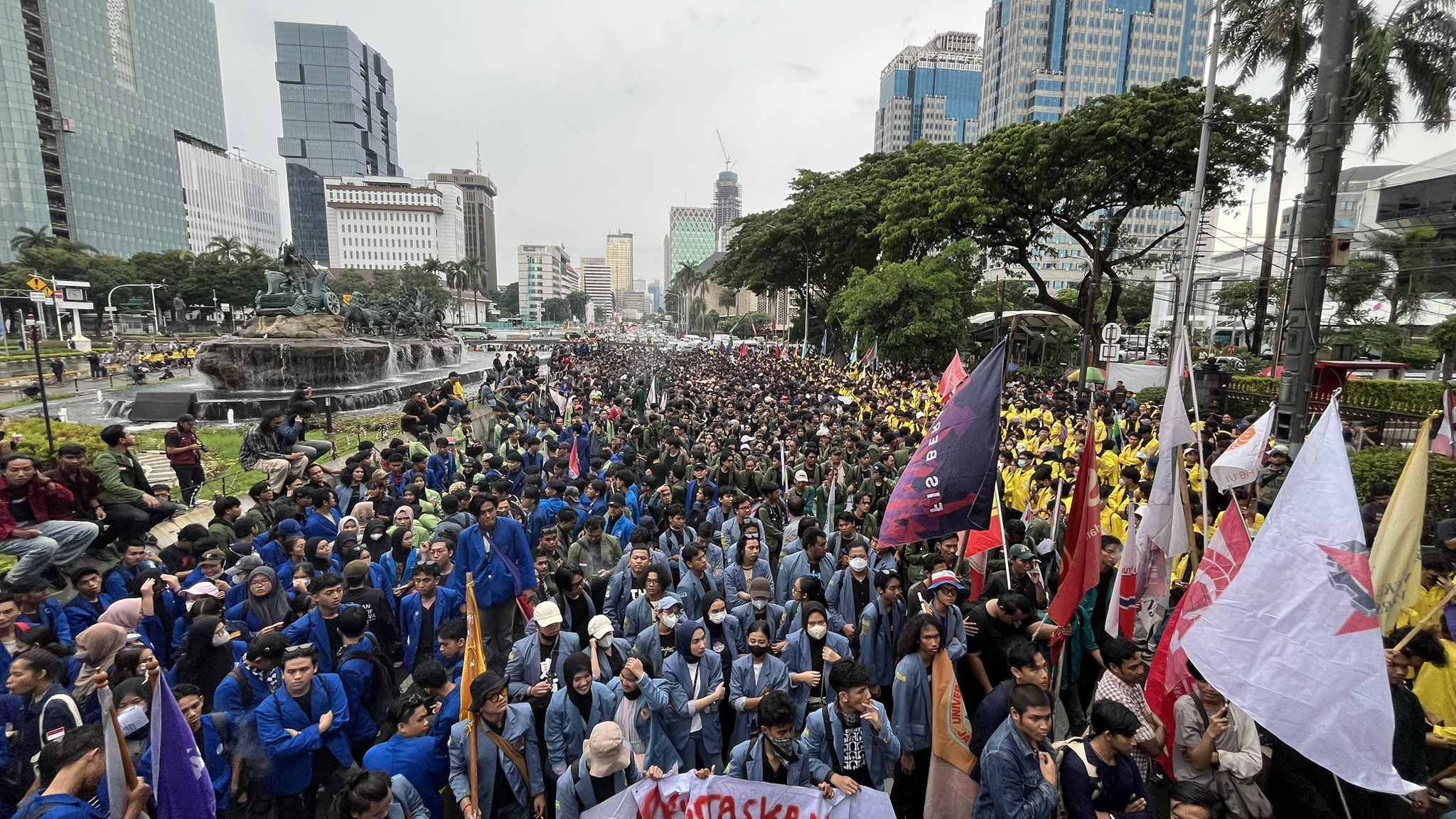Indonesian students take to the streets against Prabowo's policies
The rallies, coordinated by the All-Indonesia Association of University Student Executive Bodies, oppose cuts in education, repressive policies and the management of the Danantara sovereign wealth fund. The hashtag #IndonesiaGelap went viral on social media, a sign of mounting dissatisfaction. In Surabaya, young people clash with police.
Jakarta (AsiaNews) – Dissatisfaction with Indonesian President Prabowo Subianto's new policies has turned into street demonstrations by thousands of students.
The protests, coordinated by the All-Indonesia Association of University Student Executive Bodies (BEM SI), are accompanied by the hashtag #IndonesiaGelap (Dark Indonesia) vs "Indonesia Emas" (Golden Indonesia) promoted by the president.
In a few hours, the slogan has amassed over 785,000 posts on X. In Surabaya, East Java, a rally turned violent when students clashed with police.
The demonstration, which began yesterday, is expected to last three days. The protest is also trending on social media with images of the national coat of arms, the Garuda against a black background emblazoned symbolising what is happening in the country.
Mem appeared on social media already last year, mocking the expression, with sarcastic alternatives such as "Indonesia Cemas" (anxious Indonesia) or "Indonesia Lemas" (weakened Indonesia).
“Our nation's policies are growing increasingly repressive and harmful to the people,” the BEM SI said in a circular.
The student group is demanding transparency in the free nutritious meal programme (one of Prabowo’s main proposals), it opposes the revised Mining Law, rejects the so-called dual-function policy for the military (embedded in positions of political governance).
Protesters oppose recent budget cuts from the public administration and the education sector in favour of Prabowo administration's flagship programs, including the Danantara sovereign wealth fund, which is expected to manage more than US$ 900 billion for investments in renewable energy, advanced manufacturing and agriculture.
However, many Indonesians fear that these measures could further penalise public services and the weakest sections of the population.
05/02/2024 17:10







.png)










